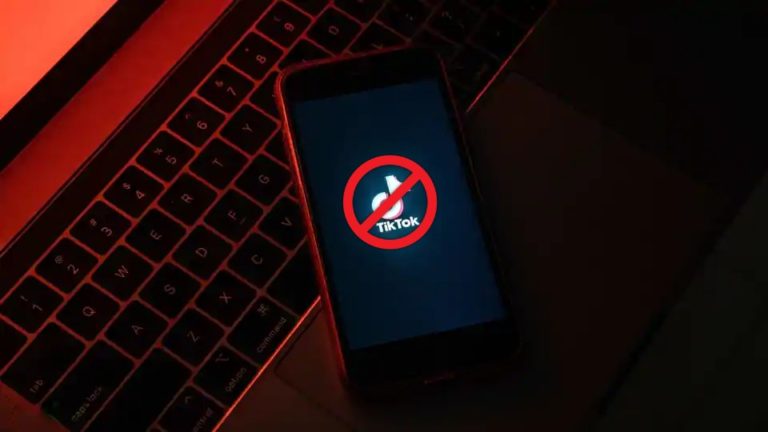
Tags: TikTok China Trump App
Bar Exam Outline How
Tags: TikTok China Trump App
Bar Exam Outline How
When Tik Tok inked a massive lease in Times Square in May, the deal generated great hopes for the office market. Since then, the Chinese government introduced a controversial national security law in Hong Kong, pushing the U.S. government to consider a ban on the 800-million user app. Here’s what you should know.

TikTok Teens are ‘Going to War‘ Against the Trump Administration after Republicans called to ban the video-sharing app over concerns that its Beijing-based parent, ByteDance, will share user data with the Chinese government. The concerns has recently been accentuated after China passed a new law on June 30, 2020 that effectively curtails protest and freedom of speech in Hong Kong, where TikTok is based.
Then came the announcement from the Indian government that TikTok would be banned on national security grounds. The move was followed by Australia, which reported considering doing the same after recent cyber attacks on the country’s government have been informally attributed to Beijing.
The amount of data collected by TikTok is concerning: the app demands access to user’s phone’s camera, microphone, contact list, location, emails and messages. Now, Facebook is doing the same, but the key difference is that the Chinese government is allegedly using this data.
Beyond launching false information campaigns like those implemented by Russia during the 2016 election, or launching cyber attacks, China wields great control over what its citizens can and cannot access online. With US user data, it could censor what Americans access, too.
Earlier last year, TikTok suspended a US user account for criticizing China’s detention of a million Muslims in the Xinjiang region, locked away in ‘reeducation’ camps.
Tags: ICE International Students Online
The new Security Law in Hong Kong
Under Hong Kong’s new national security laws, China could prosecute TikTok users for dissent. The new law stunned the city’s more than 7 million residents, who see it as a death blow to the “one country, two systems” model—the rights and laws that have protected the territory from Beijing’s despotism since 1997. Already, books by pro-democracy figures have been removed from public libraries and arrests have been made.
"In light of recent events, we've decided to stop operations of the TikTok app in Hong Kong"
A TikTok spokesperson confirmed to CNN Business. The news was first reported by Reuters. Tweet
The major American social platforms – Google, Facebook (including WhatsApp and Instagram), Twitter, and even LinkedIn have also temporarily blocked Hong Kong authorities from accessing data while they review the implications of the new security law, in what had been the only common law jurisdiction in China. The news of LinkedIn’s resistance is particularly interesting, given that it operates in China by complying with local laws.
What now? How would the Trump administration ‘ban’ TikTok
In short, American law doesn’t have any precedent for blocking software, so it seems unlikely that the White House would be able to follow through with a ‘ban’ on TikTok. True, the app has already been banned from many government employees’ work phones, including members of the US military, and some lawmakers are pushing for an even broader restriction, but TikTok is mostly a consumer app – used by 800 million users worldwide – and that might be an issue.
A more likely target is the Committee on Foreign Investment in the United States (CFIUS), which oversees mergers and investments involving non-US companies. If CFIUS decides Chinese ownership is a problem, the council could cause a lot of trouble for TikTok. The council could complicate the restructure of the company, or require a separation from its Chinese entity.
Another idea would to sever TikTok ties with Apple and Google. Getting the app removed from the iOS App Store and Google Play Store would reduce the app’s appeal. Ordering companies to deplatform TikTok would be extremely powerful.
Finally, the Trump Administration could repeat a tactic it used with Huawei, another Chinese company facing US criminal charges for racketeering and trade secret theft. In this case, the Commerce Department could put TikTok on the “entity list” that limits its commercial ties to US companies.
In the end, none of these options would constitute a literal banning of TikTok — that is, a block that cuts US users off from TikTok’s network. Similarly to the time when President Trump threatened to shut down Facebook and Twitter, there are limits on the US government powers – which is not the case in China.
What would happen to ByteDance’s lease at One Five One Times Square?
That is another interesting legal issue: in May, the company agreed to take 232,000 square feet across seven floors of the tower as part of a 10-year deal. It was the largest new office lease signed in New York since the pandemic struck and it came soon after several tech companies, including Facebook and Twitter, had sent a shiver down the spines of some New York City office landlords by deciding to let employees work from home even after the pandemic.
The company was quick in taking its distance from China. It joined other social media companies voicing concern the national security law, and announced that it is considering establishing a headquarters for the video app outside of China or a new management board to distance the service from the country, according to the Wall Street Journal. It is still unclear, however, what would restrictions do to the company – in the event they were to go through.
Throughout the coronavirus crisis, attorneys for retailers and other businesses have debated whether the pandemic qualifies as a force majeure — an event outside their control that can justify failure to pay rent. TikTok would likely use the same reasoning, arguing that unforeseen circumstances, “a frustration of purpose,” interfered with its lease agreement.
What is certain for now is that we are not done hearing from TikTok. Last fall, FBI Director Christopher Wray lambasting China as the greatest threat to the security and prosperity of the United States. In a world where the rise of China seems unstoppable, our laws and legal system are likely set to be challenged. The U.S. government knows it: TikTok has a problem with China – and there’s no obvious fix.
Home » TikTok’s problems are piling up: Trump’s ban, China’s new laws and the use of data
MORE FROM THE INTERNATIONAL LAWYER
SUBSCRIBE NOW
![Examen de l'article 100 - Fiches de révision [PACKAGE] (2025)](https://theinternationallawyer.org/wp-content/uploads/2022/10/Article-100-fiches-révision-1-300x457.png)

MORE FROM THE INTERNATIONAL LAWYER
SUBSCRIBE NOW
SEE ALSO
A Legal Website - News, Insights and Opinions on Law School, the Bar Exam, and Careers for Law Students.
Contact us: [email protected]


